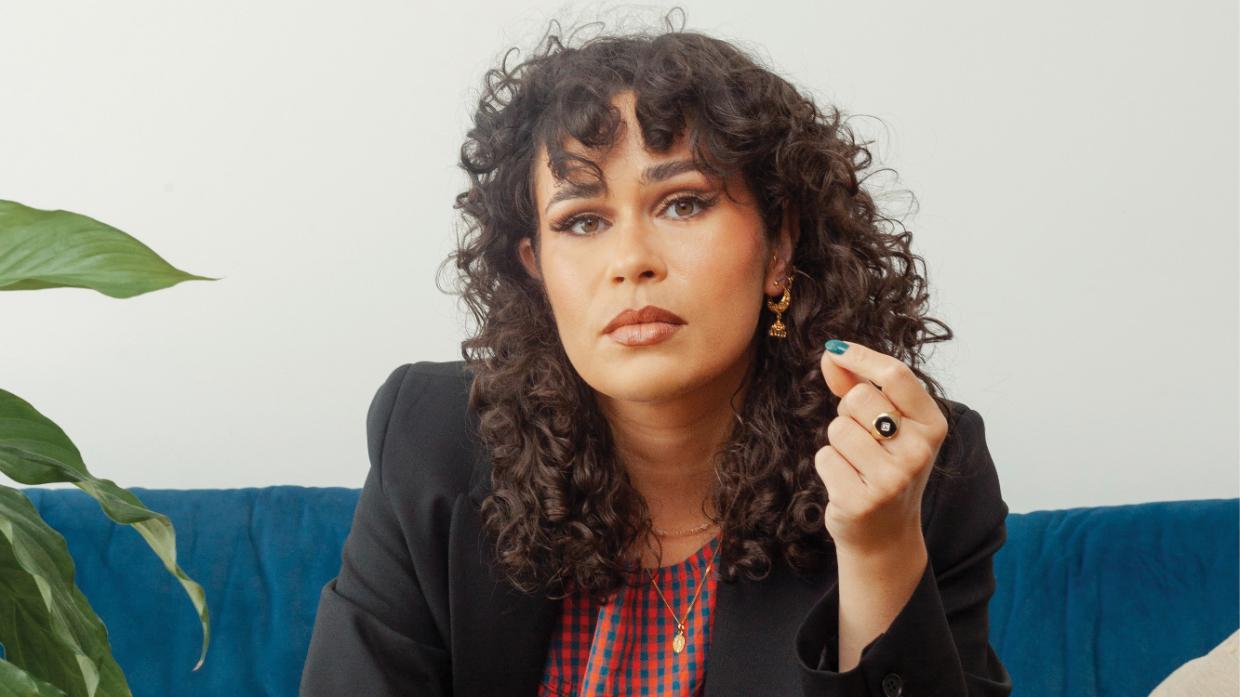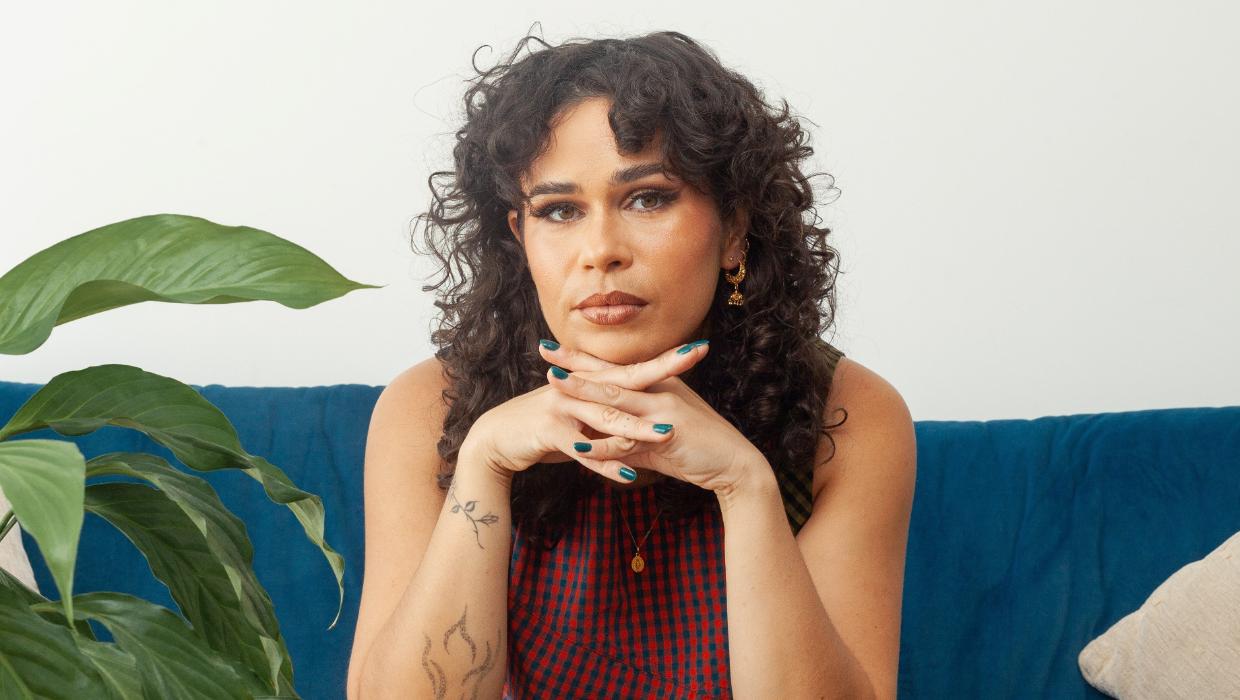The year’s most anticipated NZ story was the only one Saraid de Silva could tell-by Tyson Beckett
The year’s most anticipated NZ story was the only one Saraid de Silva could tell.
Source:Thepost
The stage, the screen, the airwaves and now the page, emerging literary talent Saraid de Silva writes for it all.
Auckland based, the Sri Lankan Pakeha writer and performer works as a storyliner on Shortland Street and is the co-creator and co-host of RNZ podcast Conversations with My Immigrant Parents.
In 2021 de Silva was the inaugural recipient of the $10,000 Crystal Arts Trust Prize, the richest university writing prize in the country. Touted as one of the hottest debut releases in Aotearoa, her first novel Amma follows three generations of South Asian women as they navigate their way across continents, cultures and expectations. It was, she tells Tyson Beckett, the only story she could write.
How did Amma come to be?
It started as part of my masters in creative writing at Auckland University and then continued when my masters finished. I was doing a theatre show when Covid happened and we shut down halfway through, didn’t get paid out. That was a wake-up call where I really reconsidered acting as a life choice. I started focusing on writing because I wanted to have more control in my life. I had moved home to afford to do my masters and I was also low key unemployed, so I had a bit more time than normal.
I wrote it because it was the only thing I could write. I don’t think there is very much calculation about it. That’s the only story I was able to tell, building from real things, but then everything else is imaginary. That’s kind of why fiction is so cool.
What first nourished your love of words?
Children’s poetry. Being a child and having my [late] grandmother read poems and books to me. It’s just so special, isn’t it, someone reading you a story?
Poetry introduced me to words, made me love words. When [someone doesn’t] like poetry, it’s so buzzy to me – you haven’t read the right poet yet. I understand there’s an elitism to poetry but really, the right kind of poem is anything but inaccessible. It actually hits you so immediately, so completely that it’s so different to what people are scared of.
You write for the screen, for the page and for your podcast. Is there a medium you’re more drawn to or is the thrill in the variety?
It’s much less the thrill of the variety and more the necessity of making money. Needing to get paid and needing to eat. I do really like all writing and I think all writing is really difficult in different ways. I would love to be able to write fiction full time, I can’t even imagine how that could be possible.
Talk to me about the economic realities of being a writer today. You have a full time job and Amma was partly made possible because of the Crystal Arts Trust Prize.
The reality of writing is that I edited that book and did big rewrites all last year by getting up and working before I went to work full time. I would start at 5am and work up until 8:30, then go to work, work a full day and then come home and edit more, which is completely unsustainable. Sometimes when people talk about working hard, they make it sound really desirable or really noble… [it] made me feel quite low and quite depressed. I wish that wasn’t how I had to do it.
Winning that prize, and also I got a couple of scholarships when I did my masters, made it much more possible. When I say low key unemployed I’m always working part time, but going back to very full time work and also working on the book, I was really daunted. So much of creation is in that idle space to dream, where you let your mind wander… there’s so many writers who do it without that but I don’t know how I could personally write like that if I didn’t have space in my life.
Though their stories intertwine, the women at the heart of Amma are separated by time, location and differing cultural experiences. Apart from genetics, what unites them?
Their rage and their frustration. Their shared inability to be honest with one another at the times when it matters most. They’re all, at various times, quite lonely in their own world. I don’t think any of them are very good at caring about themselves or looking after themselves but they might be quite good at looking after one another at times.
I think they’re all sort of in their own worlds, the way they’re orbiting through life is quite lonely. I think that’s what’s sad about the book, you’re seeing them not be able to take comfort from one another – and that’s what would fix them.
“I think that’s what’s sad about the book, you’re seeing them not be able to take comfort from one another – and that’s what would fix them.”
Grief also plays a huge part in the novel and its inspiration. In the acknowledgements you say when your granny passed, you didn’t know where to put your grief, it was too much for you and also the people around you. Writing the story and now promoting it, has it been cathartic? Has it changed your grief processing?
I guess I’m only really just starting to do that. It might be different on the other side of it. Right before I was able to share the cover and talk about it properly, I was like a real mess. It was like the book just belonged to me for so long. I was able to just sit with her, think about her and wonder whether she would like it, what kind of conversations we’d be having if she was still here.
[Now] the book doesn’t belong to just me anymore. It was really hard to get my head around. Tying into how this was the only book I could write – a woman like my grandmother was the only person I wanted to think about and write about. But every new step has been like a surprise and a joy to me. I never thought that I would write something that would be published
I guess it has been cathartic in that I’ve been able to give myself a lot of time with it. When someone dies you just want to chat about them all the time, you do worry you’re exhausting people or that you’re triggering other people’s grief.
The book definitely helped me in that I can talk about it every day. It’s not her, but it’s something inspired by her. I think, like so many other people, I am experiencing grief every day because I’m seeing so many dead Palestinian people on my phone and witnessing the grief coming out of Palestine, I think we’re all kind of collectively grieving anyway.
Amma is released by Hachette on March 26.









